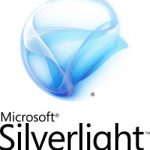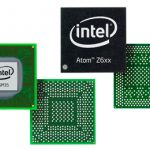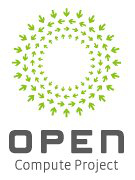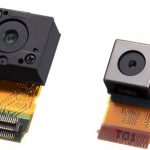Two new Internet privacy bills enter Congress: How they differ

Over the course of the last two days, two new privacy bills were introduced to Congress: one on Tuesday to the Senate, and one on Wednesday to the House. Though they both seek to establish some standard of privacy for consumers, they have some chief differences between them.
Senators John Kerry (D-Mass.) and John McCain (R-Ariz.) introduced The Kerry-McCain Commercial Privacy Bill of Rights Act of 2011 to the Senate on Tuesday of this week. This bill lists a number of "rights" that the private citizen has, and splits responsibilities between the federal government and state authorities and provides a "safe harbor" clause for companies participating in the collection of data.
Android's roots deepen in China with Zoom, Qualcomm agreement

China is the next great frontier for Android's expansion. Chinese telecommunications makers Huawei and ZTE have been incrementally expanding their global 3G Android smartphone portfolios, and Tuesday, Zoom Technologies said it will be joining the market next.
Qualcomm on Wednesday announced it had signed a WCDMA and TD-SCDMA licensing agreement with Chinese holding company Zoom Technologies. The two wireless standards are the most common 3G standards in China, and by licensing Qualcomm's technology, Zoom and its subsidiary Nollec Wireless will be able to create 3G subscriber equipment for China.
Silverlight 5 launches in beta

Silverlight 5, the latest version of Microsoft's rich internet media platform and framework is now available in beta for interested users to download and test at Silverlight.net.
Most of the features of Silverlight 5 were revealed back in December 2010 at Microsoft's Firestarter developer event, and totaled around 40 improvements or added features.
Apple's Final Cut Pro X, no longer 'hamstrung by 4GB of memory'
Khronos to open 3D gesture and touch tech to all PCs with new API

While Microsoft is expected to roll out the Kinect SDK beta at Mix 2011 this week, the Khronos Group announced it has begun work on a free and open standard for new input technologies that will include 3D cameras just like Kinect.
Khronos, the PC industry group best known for inventing OpenGL and WebGL, will create a platform agnostic, royalty-free standard for advanced input devices including everything from Kinect-like 3D cameras and motion sensors, to iPhone-like touchscreens and haptic devices.
Microsoft launches first Internet Explorer 10 preview

Check out Internet Explorer 10 Platform Preview in Fileforum now!
Fulfilling the hints Microsoft dropped back in March, the Redmond software company unveiled the first platform preview of Internet Explorer 10 at MIX 11 in Las Vegas on Tuesday.
Amazon lowers Kindle's price in exchange for advertisements

Amazon on Monday announced it had dropped the price of the third generation Kindle e-reader by $25. If this reduction in price came as a result of the usual maturation of technology (where declining manufacturing costs are passed along to the consumer), it would not be an especially newsworthy event. However, the price was reduced for a different reason: because the Kindle e-reader can now display sponsored advertisements.
The Kindle's famous screensavers can now be replaced by full screen advertisements which are customizable in the "Manage Your Kindle" section on a user's Amazon.com account. Users can indicate the amount of screensavers they see that include elements such as landscapes and scenery, architecture, travel images, photography, and illustrations.
Intel launches Oak Trail chip for tablets: Win7, Chrome, Meego tabs in May

Intel on Monday announced the availability of its "Oak Trail" Atom processors, designed for use in mobile tablets, convertible notebooks, and fanless environments that run Windows, Chrome OS, or Meego.
With more than 35 design wins to its name so far, Intel's Oak Trail Atom chipset (Z670) is expected to make its first appearance next month, and continue to appear throughout 2011.
Companies such as Asus, Samsung, Evolve III, Fujitsu, Lenovo, Motion Computing, Razer, and Viliv have all announced products based on the platform.
Mushroom Networks debuts broadband streaming HD TV camera

At the NAB Show in Las Vegas on Monday, Mushroom Networks debuted the Teleporter live video streaming rig, a portable video streaming module that bonds the connections of multiple cellular data modems for live HD video streaming.
Since early last year, a handful of companies have marketed their own "streaming backpacks" as cost-effective solutions for enabling live, on site video feeds that don't require a satellite truck and a news team of half a dozen people. The Ustream Livepack, and KIT Digital's Kyte LivePro Unwired, for example, utilize multiple cellular data lines to transmit video signals from a handheld camera to the Web or to television stations and can be run by a crew as small as one person.
New features of Microsoft Dynamics AX 2012 revealed
iPad becomes fully integrated Photoshop tool, Android and PlayBook next

Adobe is fully integrating mobile tablets into Photoshop CS5, turning them into powerful peripherals for content creation and display. On Monday, Adobe announced the Photoshop Touch SDK, and three iPad applications (Color Lava, Eazel, and Nav) which show the impressive new capabilities that an iPad or touchscreen tablet can give your Photoshop setup.
With the launch of the iPad 2 earlier this year, Apple launched iPad-optimized versions of Garageband and iMovie, two pieces of software that finally began to prove mobile tablets aren't just for content consumption, but also content creation. But those apps, like Photoshop for iPad, are just pared down versions of desktop software meant to stand on their own.
Former Epsilon CEO likens massive email breach to shopping mall master key

The list of victims in last week's security breach at email marketing firm Epsilon Interactive continues to grow, expanding to as many as 50 companies and exposing thousands -perhaps even millions- of customers' names and email addresses to potential spammers and phishing scammers.
Email marketing expert and CEO of Zeta Interactive, Al DiGuido served as CEO for Epsilon Interactive from 2001-2007. On Friday, he gave us his insight into what possibly went wrong at Epsilon and what could have been done to prevent the breach.
Sony and SanDisk look to improve video streams by predicting what you'll want to watch

Flash memory company SanDisk, along with content studio Sony Pictures Entertainment and mobile carriers SoftBank Mobile and Orange, are working on an IEEE draft standard that seeks to tackle the mobile network traffic problem created when too many people watch streaming video at the same time. The standard, called HQME (High Quality Mobile Experience) partitions off a section of a phone's memory and automatically caches the most popular web media content when network traffic is at its lowest.
The demand for mobile bandwidth is extremely high already, and only getting worse. At two points in the work day, there are huge spikes in consumption when everyone is simultaneously logged in and attempting to connect to some form of media.
Facebook open sources the data center

To figure out how to most efficiently handle the massive amount of traffic to Facebook and its related pages, a team of just three engineers working for the popular social network designed a new style of servers and power management systems and a new data center architecture. This became Facebook's Prineville, Oregon data center.
On Thursday, Facebook debuted the Open Compute Project which open sourced all the data center and server designs that its Prineville team created.
Despite earthquakes, one billion camera phones will sell this year

Market research company Strategy Analytics issued a report on Thursday which predicted that sales of mobile phones equipped with cameras will exceed one billion per year for the first time in 2011.
This milestone would represent a 21% growth over the 918 million sold worldwide in 2010, and would solidify the mobile phone image sensor as the most successful mobile peripheral ever developed.
Tim's Bio
Tim Conneally was born into dumpster tech. His father was an ARPANET research pioneer and equipped his kids with discarded tech gear, second-hand musical instruments, and government issue foreign language instruction tapes. After years of building Frankenstein computers from rubbish and playing raucous music in clubs across the country (and briefly on MTV) Tim grew into an adult with deep, twisted roots and an eye on the future. He most passionately covers mobile technology, user interfaces and applications, the science and policy of the wireless world, and watching different technologies shrink and converge.
BetaNews, your source for breaking tech news, reviews, and in-depth reporting since 1998.
© 1998-2025 BetaNews, Inc. All Rights Reserved. About Us - Privacy Policy - Cookie Policy - Sitemap.


